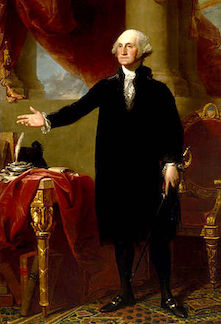1964 Republican Convention Pennant

This pennant was a memento from the Republican National Convention of 1964, held at the Cow Palace in San Francisco. It was the same location where Dwight D. Eisenhower was nominated for a second term as president of the United States. It was only the second convention ever held on the west coast.
During the run up to the election, the Republican party found itself split into two factions, traditional moderates versus a rising conservative element. Sen. Barry Goldwater championed the conservative cause, while the moderates supported Gov. Nelson Rockefeller and Ambassador Henry Cabot Lodge. While Goldwater was leading in the delegate count, another moderate, Gov. William Scranton, made a last-ditch effort to gain the nomination.
The convention took place only months after President Kennedy had been assassinated, and his successor, President Lyndon Johnson, had just passed landmark civil rights legislation. It was a time when the war in Vietnam was small and, for a majority of the population, still popular.
It was also a time when television had become an important factor in the political process. CBS and ABC had increased their nightly news from fifteen minutes to thirty minutes. The round-the-clock coverage of the Kennedy assassination signaled television’s rise as the go-to medium for news.
Prior to 1964, the nominees were traditionally selected by backroom kingmakers such as the editorial board of the New York Herald Tribune. The newspaper was considered the voice for moderate Republicans. The convention became a television event. Goldwater had momentum coming into the convention and managed to secure the nomination.

Future president Richard Nixon gained television time when he introduced the candidate prior to Goldwater’s acceptance speech. During the accecptance speech, Goldwater delivered the famous quote, “Extremism in defense of liberty is no vice. Moderation in pursuit of justice is no virtue.”

There is a popular misconception about a speech delivered by Ronald Reagan. It was called “the speech” and many people thought it was the keynote speech at the convention. Actually, it was a televised speech that Reagan gave in support of Goldwater prior to the convention. The speech was well-recieved and some historians credit it with putting Reagan on his path to the presidency in 1980.
